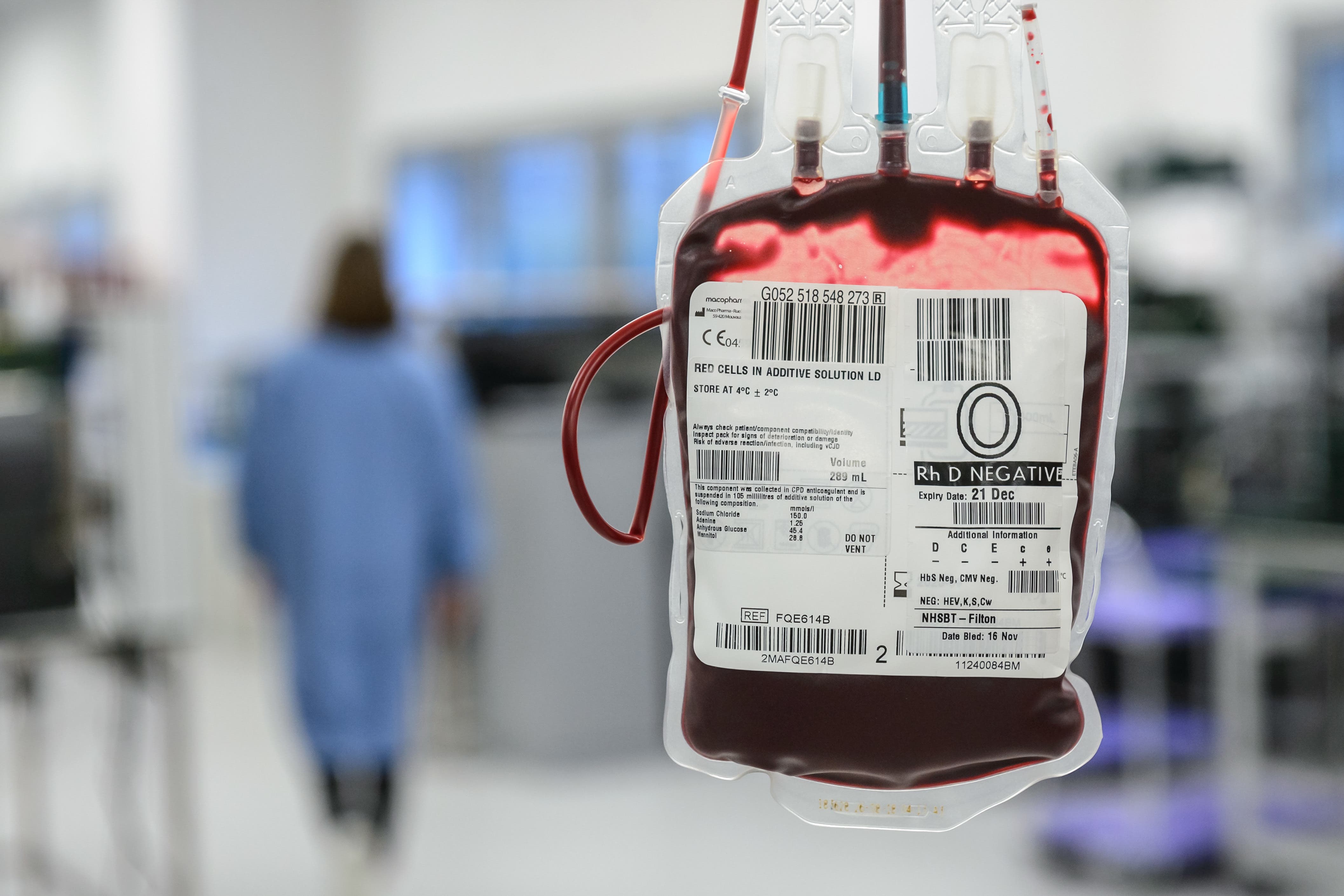Younger people urged to give blood as figures reveal most donors are over 45
Data from NHS Blood and Transplant showed that the percentage of donors aged 17-24 has almost halved since 2017-18.

Your support helps us to tell the story
From reproductive rights to climate change to Big Tech, The Independent is on the ground when the story is developing. Whether it's investigating the financials of Elon Musk's pro-Trump PAC or producing our latest documentary, 'The A Word', which shines a light on the American women fighting for reproductive rights, we know how important it is to parse out the facts from the messaging.
At such a critical moment in US history, we need reporters on the ground. Your donation allows us to keep sending journalists to speak to both sides of the story.
The Independent is trusted by Americans across the entire political spectrum. And unlike many other quality news outlets, we choose not to lock Americans out of our reporting and analysis with paywalls. We believe quality journalism should be available to everyone, paid for by those who can afford it.
Your support makes all the difference.Health officials have urged young adults to donate blood after it emerged that the number of the youngest donors has drastically diminished in recent years.
NHS Blood and Transplant (NHSBT) said that the proportion of regular donors in England aged 17 to 24 has fallen to almost half the rate it was five years ago.
It comes as the age demographics of blood donors appears to be changing, bucking recent trends of a younger donor pool.
Since 2018, the majority of donors have been aged 17 to 44, but now, more than half of donors are over the age of 45, NHSBT said.
Figures from NHSBT show that in 2017-18, young people aged 17 to 24 made up 13.07% of the donor pool but in 2022-23 this fell to just 7.2%.
Meanwhile, about 408,000 of the 798,000 people who regularly give blood are aged 45 or over (51.1%).
Older donors are now in the majority in every region of England except for London, NHSBT said.
Officials believe that the change in the donor pool could be down to a number of factors including an ageing population and knock-on effects from the Covid-19 pandemic, which interrupted usual recruitment drives to encourage young people to become donors.
While face-to-face drives – such as Fresher events at universities – have restarted again, NHSBT has also launched new campaign Giving Types to encourage people to consider becoming a blood donor.
Dr Jo Farrar, chief executive of NHS Blood and Transplant, said: “Because lifesaving blood only has a short shelf life, we need to constantly collect it and need a steady stream of new donors.
For the first time in five years, we have more donors who are aged over 45 than under, so it has never been more important for younger people to become lifesavers by giving blood
“For the first time in five years, we have more donors who are aged over 45 than under, so it has never been more important for younger people to become lifesavers by giving blood.
“Giving blood feels great. In just one hour you can save up to three lives. Please register and book your first appointment today.”
NHSBT needs to collect 1.45 million units of blood each year to meet the needs of patients across England.
As well as encouraging more young people to give blood, NHSBT is also trying to recruit more donors with black heritage.
They are more likely to have the blood type “urgently needed” to treat people with the genetic blood disorder sickle cell.
– People can register as a blood donor and book their first appointment via the GiveBloodNHS app or at www.blood.co.uk